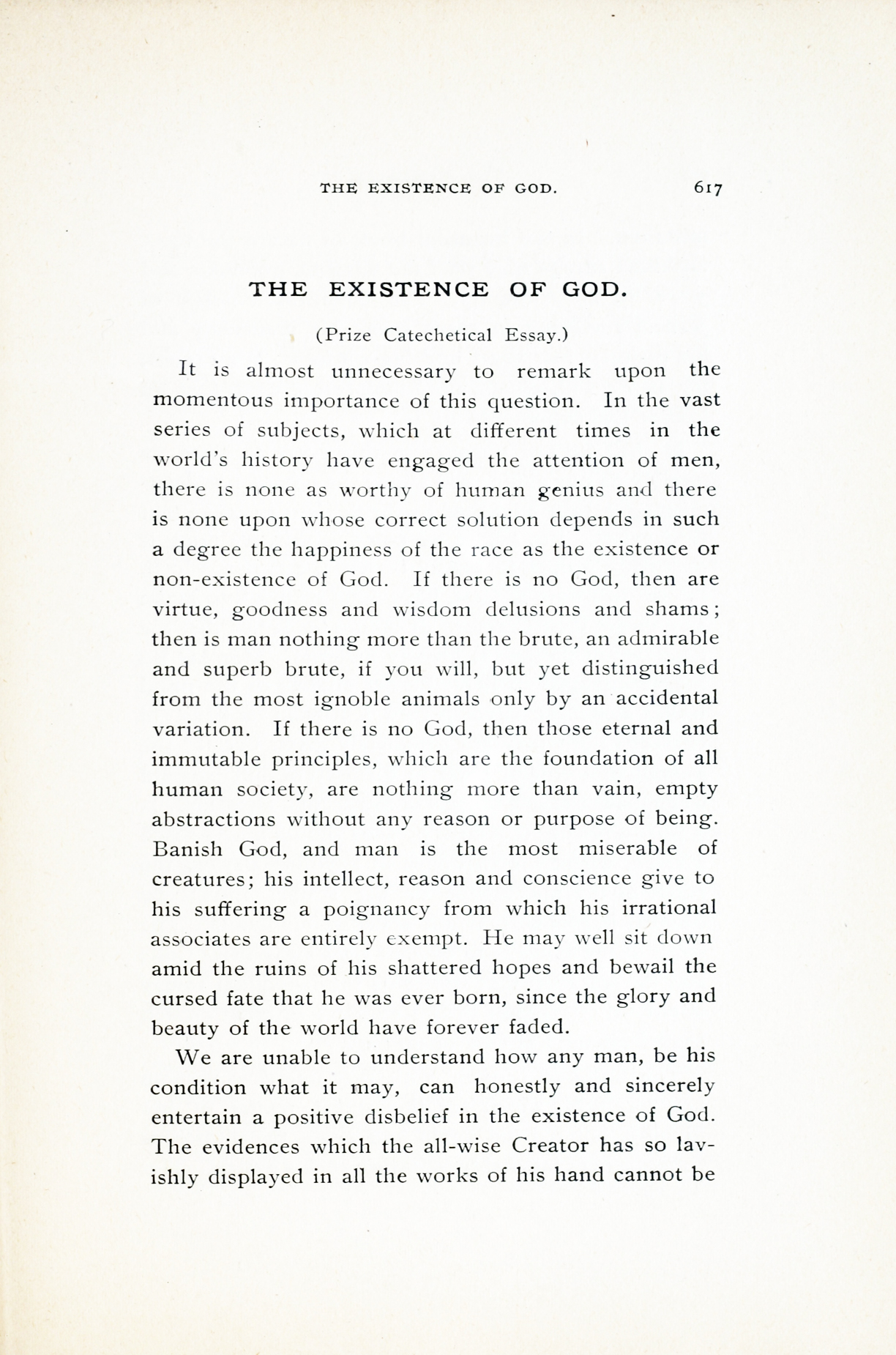The Existence of God
Ever since questions regarding life were first asked, thinkers have been seeking to prove the existence of God. Through the ages, various arguments have been put forth on this subject, from Plato and Thomas Acquinas to modern scholars. In the late 1800s, this question was taken on by the students at the University of Detroit. The result was a prize Catechetical Essay published in the July, 1898 edition of the Tamarack.
No more important or more worthy question could be asked. No heavier topic could be addressed, and no greater potential to miss the mark could be with this one question. Fred L. Milligan, class of 1898, takes it on with aplomb and produces the winning essay. With a creative mixture of sound reasoning and educational sources, his work offers a striking place in the list of those who have tackled this question before him.
In the first few lines, Milligan points out that, “If there is no God, then are virtue, goodness and wisdom delusions and shams; then is man nothing more than the brute, an admirable and superb brute, if you will, but yet distinguished from the most ignoble animals only by accidental variable.” His writing is expressed in the language of his day and offers a clue to what he has learned regarding the skill of good argument.
Without statistics or technology or experiment, without the aid of any modern scientific device for proving something that is known only through experience, with words alone, those who have set out to argue for the existence of God have entered the ultimate challenge. Yet through reasoning such as the essay offered here, they manage to make a convincing point. And isn’t that ability alone proof enough?
Visit the Tamarack to read this and other thoughtful explorations into these timeless ideas and experiences.

